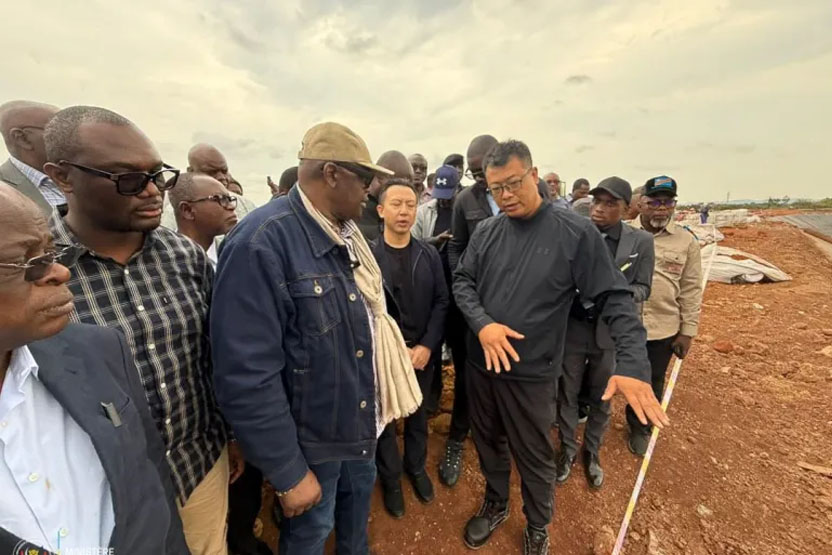
The Congolese government has suspended the operations of a Chinese mining company in the south of the country following a serious pollution incident that affected several residential neighborhoods in Lubumbashi, the Democratic Republic of Congo’s second-largest city.
In a statement issued late Thursday, the Ministry of Mines announced that Congo Dongfang International Mining (CDM) — a subsidiary of China’s Zhejiang Huayou Cobalt — had been found in violation of environmental regulations after a toxic leak was reported at one of its mining sites.
A serious public health threat
Minister of Mines Louis Watum Kabamba visited the area to assess the damage and meet with Chinese officials. In a post on the social platform X (formerly Twitter), he condemned the company’s “serious breaches of environmental obligations,” saying the spill had led to water contamination and exposed residents to major health risks.
The minister announced that the company’s activities had been suspended for three months, renewable if necessary, pending an official investigation.
“The company must fully repair the environmental damage, ensure workers’ rights, compensate affected residents, and strictly comply with the Mining Code,”
Kabamba said, adding that authorities would oversee the enforcement process.
A key cobalt supplier under scrutiny
Congo Dongfang International Mining is one of the leading producers of copper and cobalt in the Katanga region. Its parent company, Zhejiang Huayou Cobalt, is a major player in the global supply chain for strategic metals used in electric vehicle batteries and electronic devices.
The Democratic Republic of Congo supplies more than 70% of the world’s cobalt, a critical mineral for the green transition and the development of electric mobility.
The suspension comes at a sensitive moment for global metal markets, as Kinshasa seeks to tighten control over its mining resources while enforcing stricter environmental standards.
Economic tensions mounting
Earlier this year, in February, Congolese authorities temporarily halted cobalt exports in an effort to stabilize supply and boost prices. The government later lifted the ban partially in October, introducing a quota-based system for shipments.
However, industry sources told Reuters last month that many producers are still awaiting official authorization to resume exports, creating uncertainty in a market already under pressure from fluctuating demand.
The suspension highlights the increasing tension between economic ambitions and environmental protection in the DRC — a resource-rich country grappling with governance challenges. Kinshasa is striving to balance industrial development with ecological responsibility in a mining sector long dominated by foreign, particularly Chinese, interests.
For the government, the move is meant to send a clear message: foreign investors must adhere to environmental laws and bear the consequences of their actions.
“We can no longer tolerate a model of exploitation that endangers our citizens’ health and degrades our environment,”
a senior official at the Ministry of Mines told reporters on condition of anonymity.
A warning shot to the mining industry
The Lubumbashi case could have broader implications for relations between the Congolese government and international mining companies. It underscores the urgent need for greater transparency and stronger environmental oversight in a sector often accused of negligence and pollution.
As global demand for cobalt continues to soar, the DRC is seeking to position itself as a responsible actor in the green transition. But doing so will require the government to hold powerful mining giants accountable — while maintaining the country’s appeal as a key supplier of the world’s most strategic mineral.


Comment